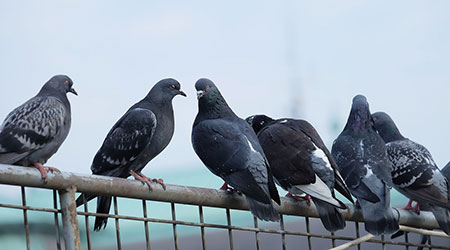Queen Elizabeth University Hospital in Glasgow has spent 450,000 £ ($545,236) to kill pests after deaths linked to pigeon droppings, according to an article on the Daily Record website.
Pest teams at the hospital have had to shoot pigeons, install anti-bird spikes and netting and use chemicals to kill mold and fungus since January.
Combatting vermin at the hospital accounts for more than half of NHS Greater Glasgow and Clyde’s entire spend on pest control for all of its facilities in Glasgow, Renfrewshire, Inverclyde and West Dunbartonshire.
Two patients at the hospital, a 10-year-old boy and a 73-year-old woman, were being treated for the fungal infection cryptococcus before they died.

 Grounding Healthcare Spaces in Hospitality Principles
Grounding Healthcare Spaces in Hospitality Principles UC Davis Health Selects Rudolph and Sletten for Central Utility Plant Expansion
UC Davis Health Selects Rudolph and Sletten for Central Utility Plant Expansion Cape Cod Healthcare Opens Upper 2 Floors of Edwin Barbey Patient Care Pavilion
Cape Cod Healthcare Opens Upper 2 Floors of Edwin Barbey Patient Care Pavilion Building Sustainable Healthcare for an Aging Population
Building Sustainable Healthcare for an Aging Population Froedtert ThedaCare Announces Opening of ThedaCare Medical Center-Oshkosh
Froedtert ThedaCare Announces Opening of ThedaCare Medical Center-Oshkosh